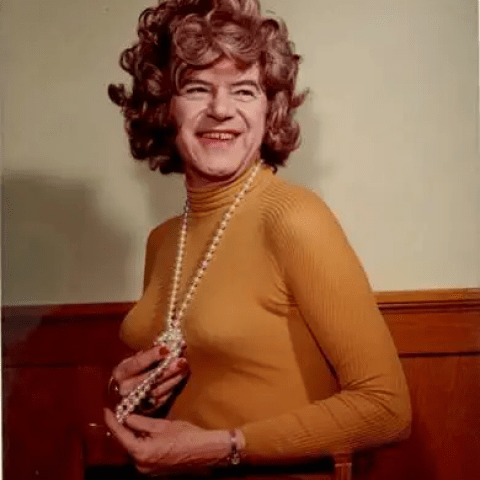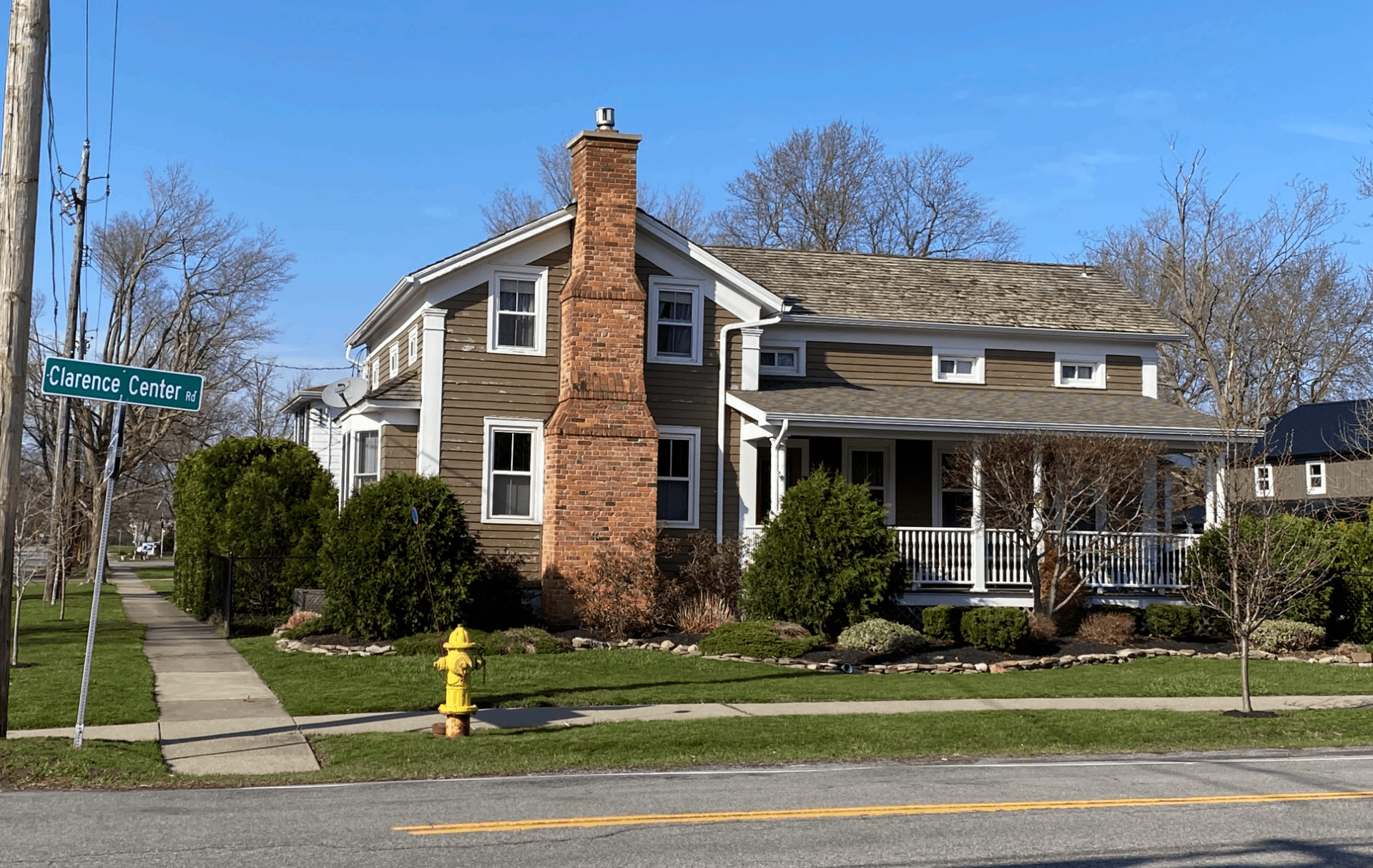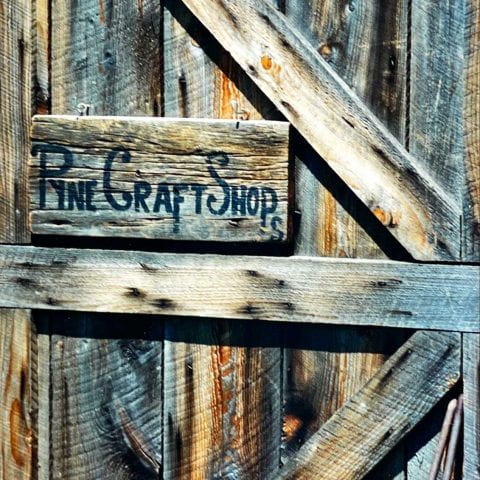The Peggie Ames House: Preserving Transgender History in Western New York
By Jeff Iovannone

I didn’t find Peggie Ames as much as she found me. In 2018, after I gave a talk on LGBTQ history at the downtown branch of the public library in Buffalo, New York, I was approached by a local couple who asked if I was interested in talking to their neighbor, Ron Brunette. Ron was a member of the Mattachine Society of the Niagara Frontier (MSNF), Buffalo’s first gay and lesbian civil rights organization, during the 1970s. Among other stories, he told me about Peggie Ames, the only out transgender person in MSNF. This led me to the Dr. Madeline Davis LGBTQ Archive of Western New York, located in the E.H. Butler Library at SUNY Buffalo State, where Ames’s personal papers are housed. I also watched David B. Marshall’s documentary Swimming With Lesbians (2009), about the creation of the Davis Archive, which features Ames’s story.
The Peggie Ames I saw in the archive, however, was not the Ames of Marshall’s film. Marshall presents Ames within what trans writer and activist Julia Serano calls the “pathetic narrative” of trans representation: the pitiful trans woman who cannot “pass,” cannot fit in, and is condemned to a life of trauma, rejection, and victimhood. The documentary, released in 2009, fit Ames into a popular narrative of trans representation at the time. The Ames I saw was someone more resilient and complex. I also discovered that Ames began writing an autobiography, but never completed it due to health and financial challenges. As a trans woman living in the rural town of Clarence Center, New York, she felt her experiences were far different than trans women she saw in the media, such as Christine Jorgensen and Renée Richards, and should be documented. Only Ames could finish her autobiography, but I thought I could tell her story in a way that, while not denying the discrimination she faced, emphasized her advocacy and determination.

Peggie Ames transitioned in the early 1970s and was the first publicly out transgender person in Western New York. She joined MSNF and was the organization’s secretary from 1973 to 1974. Ames also participated in MSNF’s peer counselor training program, organized panels on transsexualism for Buffalo’s annual Gay Pride Week, and joined the Speakers Bureau. In a 1978 profile written for the Buffalo Courier-Express, she estimated that she had lectured to around 12,000 people on trans issues, primarily medical, nursing, and psychology students at the University at Buffalo and other area campuses. Her personality, at times forceful and domineering, was well-suited to public speaking but did not endear her to everyone, particularly some members of Buffalo’s lesbian feminist community.
Aside from public lecturing, the site of much of Ames’s advocacy was her historic Greek Revival style house (built circa 1830), located at 9500 Clarence Center Road. The privilege of a stable residence allowed Ames to become an established contact for the Erickson Educational Foundation (EEF). Founded in 1964 by the independently wealthy trans man Reed Erickson, the EEF became the leading organization to fund research into transsexualism and to provide information and support to trans people in need of guidance during the 1960s and ‘70s. Trans people from Western New York who contacted the EEF for support were often referred to Ames for peer counseling or transition-related guidance. Ames, in fact, ran an EEF-registered informal counseling service out of her house and provided shelter for trans women in need of temporary living accommodations. Ames, to the best of my knowledge, was the only rural trans person listed as an EEF resource (all others were medical professionals and fledgling trans organizations in cities such as New York and San Francisco). Unable to find conventional employment as an out trans woman in 1970s Buffalo, Ames also started her own furniture restoration business, Pyne Craft Shops, that she operated out of the barn on the back of her property.

My colleague Christiana (Christy) Limniatis, an historic preservationist with Preservation Buffalo Niagara and fellow Cornellian, encouraged me to look further into the history of Ames’s house and its connection to her advocacy. Based on the house’s historic character and centrality to Ames’s advocacy, we decided to nominate 9500 Clarence Center Road for the National Register of Historic Places. After identifying a site potentially worthy of designation, the next step is to submit a determination of eligibility to the State Historic Preservation Office (SHPO). The SHPO determined the Peggie Ames House National Register eligible in August of 2021. In their determination, the SHPO specifically noted that the house is the first site in Western New York deemed eligible for its connection to LGBTQ history and the first site in New York State determined eligible for its connection to the transgender community. Christy and I are now moving ahead with the full nomination.
The designation of the Peggie Ames House as an historic site will serve as a reminder that LGBTQ history happens in places beyond large cities like New York and San Francisco. Ames, like many trans people of her generation, faced hardships, but was never solely a victim. Through her stubborn persistence, she carved a path for future generations of trans and gender-nonconforming people in Western New York and beyond.
Jeff Iovannone is a queer historian from Buffalo, New York, and an MA student in Historic Preservation Planning at Cornell University. He received his PhD in American Studies from the University at Buffalo in 2012 and coordinated the Women’s and Gender Studies Program at SUNY at Fredonia from 2013-2021. His areas of interest include LGBTQ heritage preservation, connections between preservation, public history, and social justice, and the use of preservation planning to benefit historically marginalized communities. Iovannone is also the co-founder of Gay Places, an initiative that documents LGBTQ historic sites in Western New York, with Preservation Buffalo Niagara.

